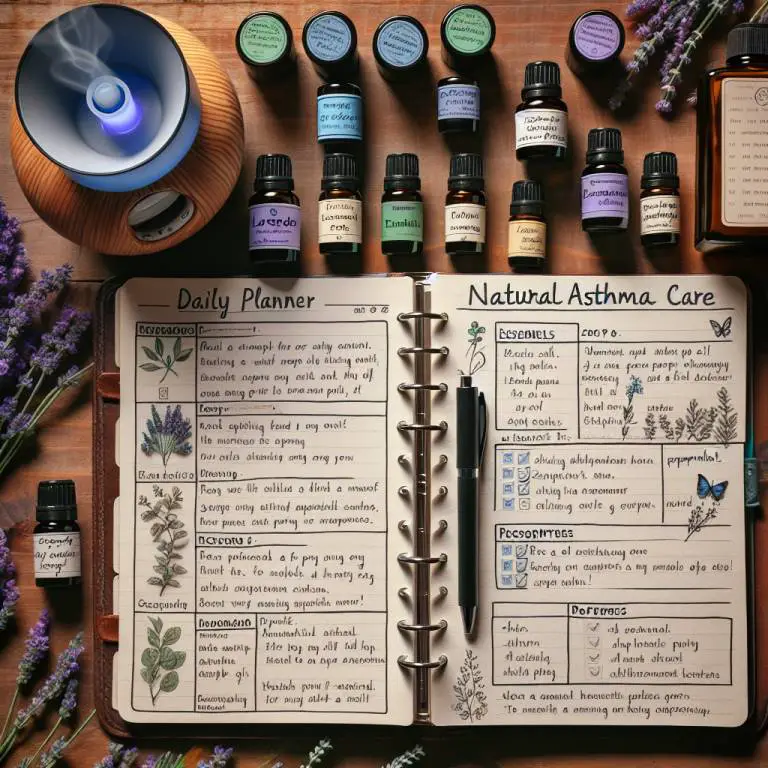Are Air Purifiers Good For Asthma?
Turns out there’s nothing like a pandemic to get people thinking about air quality. Of course, asthmatics have always had to be careful about what goes in their lungs, which is why many of us have turned to indoor air purifiers to help manage our respiratory symptoms.
Air purifiers are good for managing asthma, as long as you stick with at least an H13 grade HEPA air filter. Many studies show that the right air purifiers can help manage and relieve asthma symptoms. With that said, if you have asthma, you may want to avoid air purifiers with ionizers (or turn it off, if you can).
In this article, we’ll explore the ins and out of air purifiers and why they’re good for asthma (and the lungs in general), along with the best types of air purifiers for our condition (including many you can easily find on Amazon).
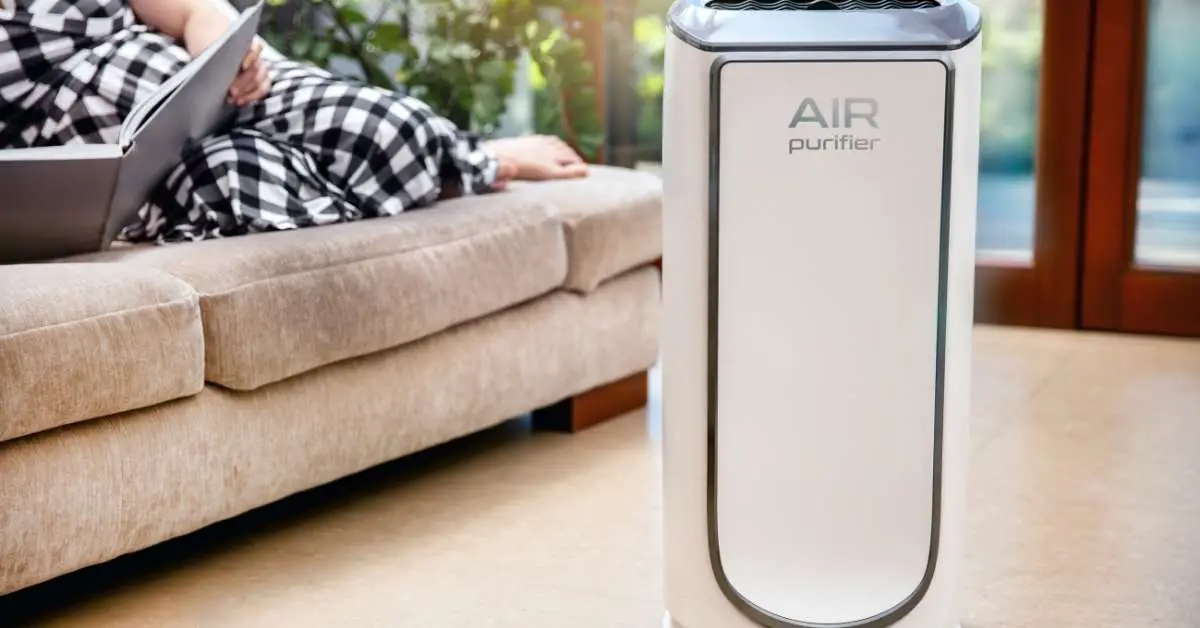
Why Are Air purifiers good for asthma?
High quality air purifiers are good for asthma because they remove allergens, pollution, and other asthma triggers from the air. In short: if there are no triggers in the air, you won’t be breathing triggers into your lungs. Ideally, no asthma triggers = no asthma symptoms.*
*In my experience, the best remedies for asthma are always those that are this simple and straightforward.
Of course, there are many things besides air quality that can cause your asthma to flare up, such as cold air, exercise, smoking, or simply being sick. An air purifier won’t help with these types of triggers, but they can help you minimize your symptoms and potentially get better faster.
When it comes to certain environmental triggers, however, especially related to what you’re breathing in, air purifiers can help in a big way.
Are HEPA air purifiers good for asthma?
‘HEPA’ stands for ‘high energy particular air filter,’ and according to the EPA, these types of air filters can theoretically remove at least 99.97% of dust, mold, bacteria, and any airborne particles down to 0.3 microns in size.
In plain English, HEPA air purifiers use incredibly effective filters that essentially clean the air by removing harmful particles from it. HEPA air purifiers are good for asthma because these harmful particles can often trigger asthma symptoms. Remove the trigger, and you reduce your symptoms.
As someone with asthma who uses a HEPA air purifier, I can tell you anecdotally that I swear by mine. Using a good air purifier has definitely help me sleep better and keep my asthma symptoms in check.
But of course, it’s never a good idea to base decisions solely off of the experience of one stranger on the internet. That’s why I can also tell you that there’s lots of credible, scientific research that supports using HEPA air purifiers to help manage asthma symptoms. Check out these recent studies:
- A 2020 study from the Yonsei Medical Journal found 3 weeks of air purifier use greatly improved air quality in the home, therefore “reducing the frequency of medications used.” The researchers concluded that “air purifiers can have a positive effect on the health of asthma patients by filtering fine dust and microbes from indoor air.”
- A 2021 study from Allergol Immunopathol found that “HEPA air purifiers can decrease indoor HDM allergen and PM levels and improve the quality of life for allergic asthma patients.”
- A 2021 study from the Indoor Air journal found that “indoor concentration of traffic-related airborne particles can be reduced with the use of HEPA filtration, and this decline could improve clinical outcomes in children with asthma poor control and quality of life.”
- A 2011 study in Pediatrics found that “in a randomized, double-blind trial, that HEPA air cleaners led to an 18.5% reduction in unscheduled asthma visits.”
Update: I’m currently using the Medify Air MA-40 air purifier and I love it. Read my full review of it here.
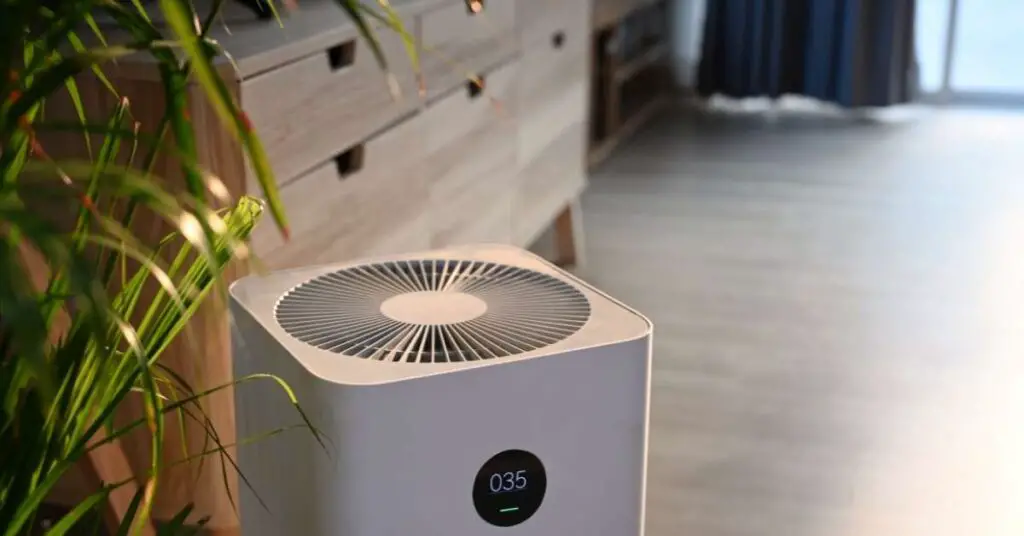
Do air purifiers help the lungs in general?
Again, thanks to the pandemic, many people are now thinking about their lung health, not just people with asthma.
And of course, if you share your home, you might be wondering if air purifiers will benefit your family members or roommates, even if they don’t have asthma.
So in case you’re looking for further reasons to consider getting a HEPA air purifier, it’s helpful to know that air purifiers may help improve lung health for everyone in your home.
The reality is that while harmful particles in the air can trigger asthma symptoms, they’re simply not good for anyone to be breathing in. Filtering out exposure to both biological contaminants like dust mites and mold, and non-biological contaminants like tobacco smoke and volatile organic compounds can help improve respiratory health and vascular health. In fact, one scientific literature review found that “reduction in particulate matter and allergens results in reducing symptoms and in certain cases, preventing disease progression across all age groups, including the elderly and children. The evidence is apparent, in chronic respiratory diseases, such as asthma and in cardiovascular health” (source).
In my experience, using a good air purifier also just makes my home smell and feel fresher and clear – something that benefits everyone in it.
Can air purifiers make asthma worse?
It’s critically important to note that when considering air purifiers for asthma, we’re talking about those that use H13 grade HEPA air filters or better. These are what will help filter out small particles from the air and make breathing easier.
That said, there is a type of air purifier called ‘ionic air purifiers’ that may make your asthma symptoms worse. These are purifiers that produce ions that they put into the air. These ions then circulate through the air to destroy and therefore clean out impurities. The problem for people with asthma and allergies is that these ions can be a respiratory irritant.
Specifically, ionic air purifiers use ozone emissions, which people with respiratory conditions may want to avoid.
In fact, according to one report from Environmental Health Perspectives, ionizing air purifiers “are not only ineffective at removing contaminants from indoor air, but also may emit enough ozone to be a health concern.”
Thankfully, as we’ll cover below, there’s lots and lots of great HEPA filters available today.
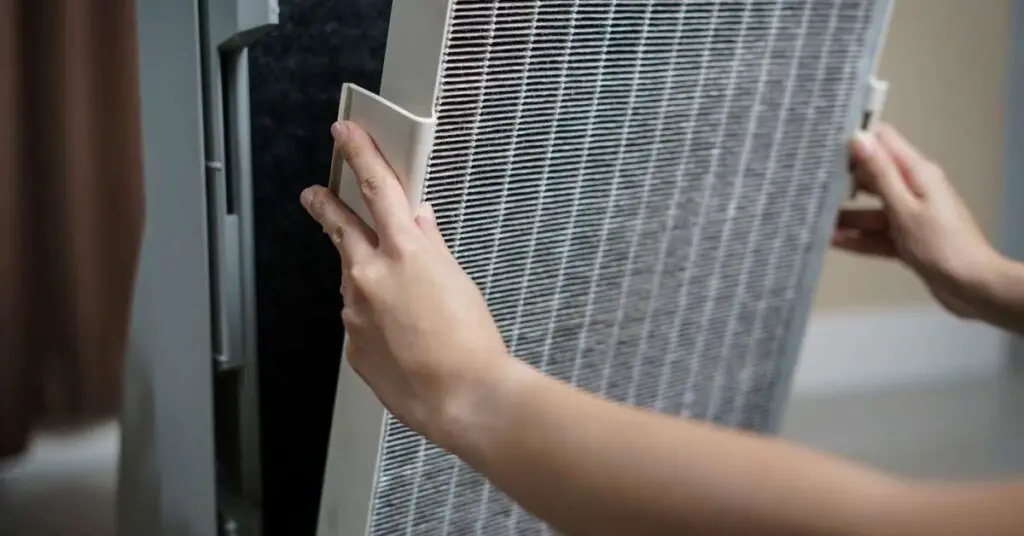
Good air purifiers for asthma available on Amazon
Using a good air purifier is one of my favorite types of asthma treatment. I like common sense remedies that supported by science and easy to implement. And thankfully, it’s quite easy to get an air filter and start making your air cleaner.
Specifically, there are many HEPA air filters available on Amazon, at a range of price points. In the past, I’ve recommended (and used) Honeywell air filters, which are generally quite sturdy and well reviewed.
Today, I use the Medify Air MA-40 air purifier, which is an excellent H13 grade HEPA air purifier with lots of great features. You can read my review on it here.
If you’re looking for a new air purifier on Amazon, I recommend looking for ones that are certified grade H13 HEPA or better. Also, make sure to get an air purifier that is powerful enough to meet the square footage of your home. Here are a few decent air purifiers with H13 HEPA filters to get you started:
- Medify Air MA-40
- LEVOIT air purifier for large rooms
- Air Choice True HEPA H13
- LEVOIT air purifier for home
Tip: If you buy the MA-40 from Medify directly (not Amazon), you can use the coupon code ‘treatasthma15’ for $15 off your order.
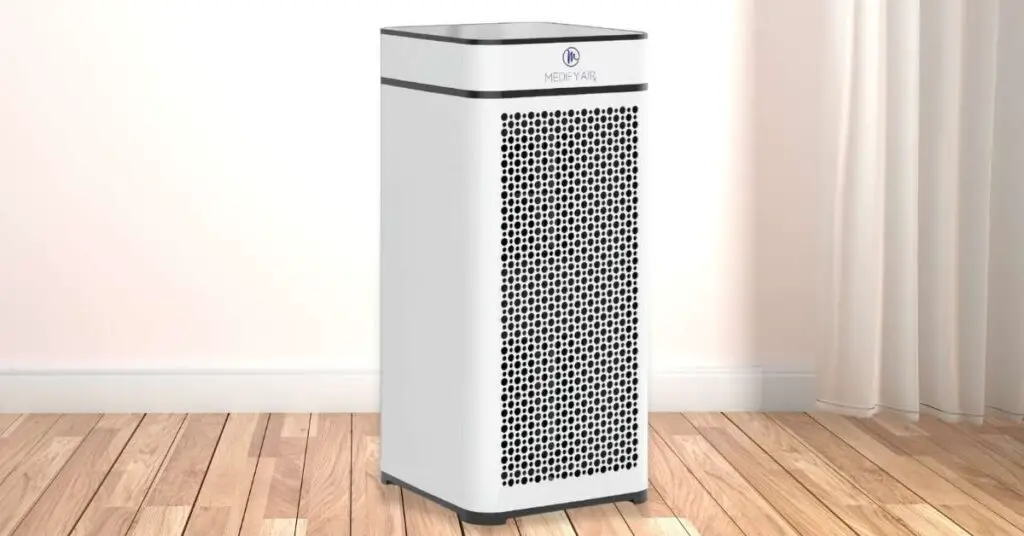
Related Posts:
- Air Purifiers For Asthma: A Complete Guide
- How To Survive Wildfire Smoke And Asthma: 7 Powerful Strategies
- Medify Air MA-40 Review
Related Questions:
Which Air Purifier Is Best For Asthma?
High quality HEPA air purifiers are best for asthma, because they remove the most harmful particles and triggers from the air. I personally use the Medify Air MA-40.
Do Air Purifiers Help Asthma Sufferers?
Yes, studies show that using a HEPA air purifier can help reduce asthma symptoms.
Can Air Purifiers Cause Breathing Problems?
While most air purifiers are good for breathing, ionized air purifiers emit ozone emissions which may be harmful for those with respiratory issues.
Should I Sleep With Air Purifier On?
Yes, you can sleep with your air purifier on. In fact, nighttime is often the best time to use your air purifier, to ensure that you’re breathing in clean air while you sleep. I sleep much better with my air purifier on.
Do HEPA Filters Help With Asthma?
Yes, there are many scientific studies that show that HEPA air filters can remove particles that contribute to asthma symptoms. By removing these asthma triggers, HEPA air filters can help reduce asthma symptoms.
Which is better for asthma: humidifiers or air purifiers?
Humidifiers and air purifiers are not either-or. Both can help manage asthma symptoms. That said, it’s only HEPA air filters that specifically remove harmful triggers from the air.



